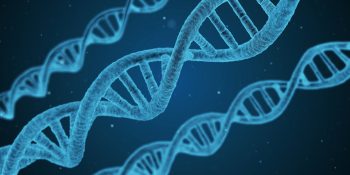16 January 2023: Needles in an ocean haystack: using environmental DNA to study marine mammals in the North Atlantic
It is our pleasure to announce the publication of a new literature review published in Volume 12 of the NAMMCO Scientific Publications series – Marine Mammals in the North Atlantic.
The review, Needles in an ocean haystack: using environmental DNA to study marine mammals in the North Atlantic, authored by Dóra Székely (University of Copenhagen), Kristina M. Cammen (University of Maine) and Morten Tange Olsen (University of Copenhagen), reviews eDNA studies of marine mammals and discuss the potential applications and practical challenges of eDNA in marine mammal research, management and conservation.
Abstract

©Arek Socha from Pixabay
Marine mammals in the North Atlantic have experienced severe depletions due to overexploitation. While some species and populations have now recovered, there are numerous other anthropogenic activities impacting their North Atlantic ecosystem. Studying marine mammals is often associated with logistical challenges, and many species have an elusive nature, resulting in substantial knowledge gaps on the distribution, abundance and diversity of marine mammals in the North Atlantic. Environmental DNA (eDNA) is an emerging tool in biodiversity monitoring and has successfully been demonstrated to complement traditional monitoring methods for a wide range of marine taxonomic groups. The promising potential of seawater eDNA is owe to advances within an array of molecular methods used to extract, detect and/or sequence the genetic material of marine organisms from a single seawater sample.
We present a literature review of eDNA studies of marine mammals and discuss the potential applications and practical challenges of eDNA in marine mammal research, management and conservation.
Environmental DNA has already been introduced to a wide range of applications within marine mammal science, from detection of endangered species to population genetic assessments. Furthermore, eDNA has the power to capture other biologically important species in the marine ecosystem and food web, which could facilitate insight into the spatiotemporal variation of different marine communities in a changing environment. With methodological and technological standardization, eDNA based approaches have a promising potential to be integrated into regular monitoring practices and management strategies.
The full article is available here
Read more about the marine mammals in the NAMMCO management areas here


